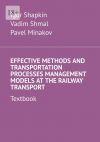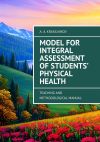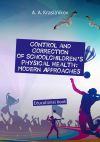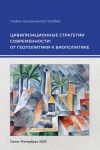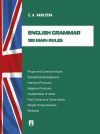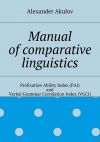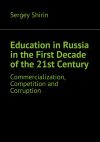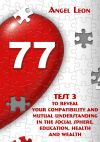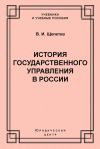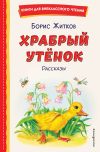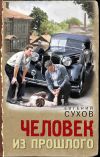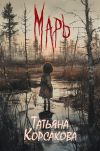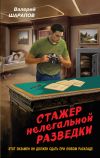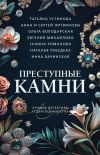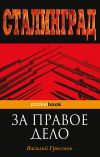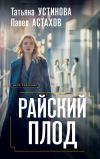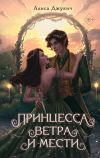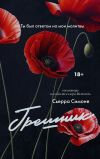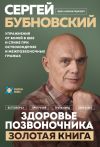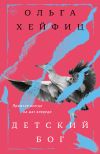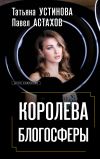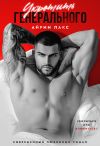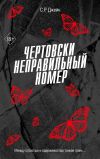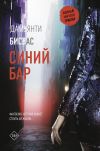Текст книги "Английский язык. Сравнительная педагогика"
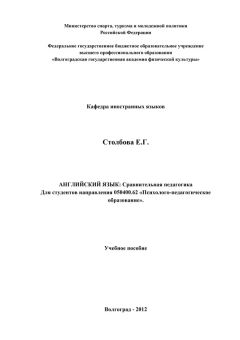
Автор книги: Елена Столбова
Жанр: Учебная литература, Детские книги
сообщить о неприемлемом содержимом
Текущая страница: 3 (всего у книги 5 страниц)
LESSON 7
EDUCATIONAL PHILOSOPHY
TEXT A
1. Read and translate the text.
What makes one teacher different from another? It is merely a difference in educational philosophy that differentiates them in the eyes of their students. The philosophy determines how effective they are at imparting knowledge, and what legacies they will leave behind…
When we carefully think about the many teachers and professors that we have encountered in our lives, we begin to see a big difference in everyone's educational philosophy. Every teacher has their own unique way of delivering learning and teachings to their pupils, and this affects the intensity with which these teachings are accepted, and the fondness with which these teachers are remembered. We all have that one special teacher that we will always remember, and this is solely dependent on that individual educational philosophy.
The philosophy of education of a teacher is a statement of purpose of sorts, which outlines this persons views on the manner in which education is supposed to be delivered. It can also be termed as a vision statement of the person, and what he/she aims to instill in the students in order to develop them on all levels. Every person will have their own individualistic style of teaching their students, and it is their philosophy in education that determines how they intend to go about it.
When an individual is preparing to become a teacher, he/she is asked to pen down their personal educational philosophy statement. This document serves as a guideline for them during the course of their teaching career, and it should also be a reference for them to stick to their principles. They need to write down what education is in their opinion, and how they plan to go about spreading education in an efficient manner.
These statements of educational philosophy should serve as a guiding light for the rest of that persons teaching career, and it should specify their broad goals and purposes of being a teacher. No matter what happens, they should always stick to their philosophy. Education is not an easy gift to impart as it involves many intricacies, and the least that is expected of teachers is to have a clear vision and purpose for doing what they do. Here are some of the questions that an educational philosophy should commonly answer.
• What is the purpose of education in a broader sense, as related to the community and society on a whole?
• What is, in your opinion, the role of a teacher in a classroom?
• What are your goals and ambitions for the students you are teaching?
• What methods do you think facilitate the learning process most effectively?
• Are you convinced that all students can learn something new everyday?
• Lastly, what qualities should a good teacher possess?
If one can manage to answer all these questions and pen them down convincingly, then this qualifies as a successful educational philosophy blueprint that one should stick to for the rest of their teaching career.
An individual philosophy and education must go hand in hand with each other, and this is reflected in the statement that they create when they are applying for a teacher’s job. This is more than just a written page of one's beliefs, because if the institution where one is applying is run the right way, they will definitely scrutinize one's educational philosophy very carefully.
There are bound to be differences in the educational philosophy of different people, and the methods that they employ. What is important is to understand the sole aim of teaching is to uplift and free the students, not bind them. If you are a teacher, stay true to your educational philosophy, and your students will never forget you.
Vocabulary:
determine – определять
legacies – наследие
deliver – доставлять
outline – проявляться
intend – намереваться
reference – указание
specify – указывать
intricacies – тонкости
facilitate – облегчать
reflect – отражать
impart – распространять
encounter – сталкиваться
accept – принимать
aim – стремиться
guideline – ориентир
statement – утверждение
stick to – придерживаться
related to – связанный с
blueprint – проект
manner – способ
2. Give English equivalents:
Мнение, подарок, по крайней мере, цель, сообщество, качество, оставлять, распространение, ясное видение, убежден, остальная часть, сталкиваться, утверждение, включать, успешный, учебный процесс, различие, особенный, ожидать, общество, владеть, забывать, создавать, влиять.
3. Translate these expressions:
To be termed as, to instill, efficient manner, broad goals, to pen down, guiding light, no matter, ambitions, sole aim, to stick to the principles, to go hand in hand with, teaching career, vision statement, broad sense, to apply for a job, to run the right way.
4. Answer the questions:
1. What does teacher’s philosophy in education determine?
2. What is the philosophy of teacher’s education?
3. What must an individual do if he wants to be a teacher?
4. How can individual philosophy and education be connected?
5. What are the differences in the educational philosophy of different people?
6. What questions does the educational philosophy concern with?
7. What are the main statements of educational philosophy?
5. Translate into English:
1. Учителя отличаются в понимании философии образования.
2. Философия и образование должны идти рука об руку друг с другом.
3. Основные положения философии образования должны быть ориентиром во всей карьере учителя.
4. У каждого человека есть воспоминания об особенном учителе.
5. Образование включает в себя много тонкостей.
6. Философия образования должна ответить на важные вопросы.
7. Каждый учитель имеет свой собственный способ передачи знаний.
TEXT B
6. Read and translate the text.
Friedrich Wilhelm August Froebel ( April 21, 1782 – June 21, 1852) was a German pedagogue, a student of Pestalozzi who laid the foundation for modern education based on the recognition that children have unique needs and capabilities. He developed the concept of the “kindergarten”, and also coined the word now used in German and English.
He began as an educator in 1805 at school in Frankfurt, where he learnt about Johann Heinrich Pestalozzi’s ideas. He later worked with Pestalozzi in Switzerland where his ideas further developed.
From 1806 Froebel was the live-in teacher for a Frankfurt noble family’s three sons. In 1826 he published his main literary work “The Education of Man” and founded the weekly publication “The Educating Families”.
In 1837 he founded a care, playing and activity institute for small children in Bad Blankenburg. In 1840 he coined the word kindergarten for the Play and Activity Institute he had founded in 1837 at Bad Blankenburg for young children.
He designed the educational play materials known as Froebel Gifts, which included geometric building blocks and pattern activity blocks.
General understanding:
1. What concept did he develop?
2. What were Froebel Gifts?
3. What institute did he found for small children?
4. In what family did he work?
5. What was his main literary work?
LESSON 8
ROLE OF HIGHER EDUCATION
TEXT A
1. Read and translate the text.
Anyone seeking to tackle the problems facing the developing world must remember two simple facts of life. First, none of these problems – from food shortages and the spread of disease, to achieving sustainable economic growth – can be addressed without the use of science and technology.
Second, harnessing science for development depends on the skills of a country's people. And that in turn requires a robust and effective higher education system – the only mechanism that can produce and sustain these skills.
But in the recent past, many governments overlooked this critical information. Few developing countries, for example, refer to either science or higher education in their Poverty Reduction Strategy Plans – the documents that guide other countries on a country's investment priorities.
Fortunately, for a variety of reasons – perhaps most importantly the growing awareness of the need for a strong domestic science base to benefit from the global knowledge economy – both developing country governments, and development funding organizations, are now recognizing the need to build robust higher education systems.
The next step is to consider how this can be best achieved. There should be the appropriate balance between teaching and research. Social and economic needs should drive research priorities and complementary basic research. There are the advantages – and pitfalls – of seeking to compete with higher education institutions in the developed world.
People intend to put higher education's role in achieving development goals under the spotlight, the role aid agencies play in supporting this process, and the opportunities and hurdles facing policymakers on the ground.
Summarizing the shifting attitudes to higher education as a development objective, the relevant initiatives have been launched over the past decades and the challenges that these initiatives have faced.
Some countries make a powerful case for building the capacity of higher education institutions as the key to making science and technology contribute to a country's development. The other countries argue for universities to promote socioeconomic growth, by building links with industry. Such links are essential for any country wishing to benefit from the fruits of knowledge-based innovation.
So, university education is necessary for everyone. It is very important. It is an integral part of our life. Educated person is more likely to get a good job. He has a great future and quality of a life is higher than an uneducated person. This is one of the main reasons why we should study at university. In additional, education helps to get different skills. Besides, university education is opportunity experience rich culture and social life. This will change our lives for the better and move to a new stage of development.
Vocabulary:
tackle-решать
shortage-нехватка
sustainable-устойчивый
skill-квалификация
sustain-поддерживать
guide-руководствоваться
awareness– осознание
research-исследование
opportunity– возможность
objective– цель
challenge– проблема
capacity– потенциал
facing– стоящий
disease– болезнь
harness– использовать
robust– надежный
overlook– не замечать
basic– фундаментальный
funding– финансирование
compete– конкурировать
shifting– смещение
relevant– соответствующий
powerful– мощный
contribute– способствовать
2. Give English equivalents:
Нехватка продовольствия, инвестиционный, достигать, быть решенным, исследования, возможности, распространение, надежный, единственный, наука, связи, существенный, поддерживать, необходимость, внутренний, в центре внимания.
3. Translate these expressions:
Developing world, growth, to require, recognizing the need, to tackle the problems, to guide, essential links, for a variety of reasons, developing countries, basic research, the developed world, powerful case, industry, to benefit from the fruits innovation.
4. Answer the questions:
1. What is the appropriate balance between teaching and research?
2. What did many governments overlook?
3. Why do countries need for a strong domestic science base?
4. What is the role of higher education?
5. What does education help to get?
6. Why is higher education necessary?
7. What should social and economic needs drive?
5. Translate into English:
1. Использование науки в целях развития зависит от квалификации людей страны.
2. Необходимо определить роль высшего образования в достижении целей в области развития.
3. Самое важное – это осознание необходимости мощной научной базы.
4. Многие правительства не заметили этой критически важной информации.
5. Одной из проблем является нехватка продовольствия и распространение болезней.
6. Необходимость высшего образования обуславливается потребностями социально-экономического роста.
7. Достижение устойчивого экономического роста невозможно без использования науки и техники.
TEXT B
6. Read and translate the text.
Konstantin Dmitrievich Ushinsky (2 March 1824 – 3 January 1871) was a Russian teacher and writer, credited as the founder of scientific pedagogy in Russia.
Konstantin Ushinsky was born in Tula in a family of a retired officer. In 1844 Ushinsky graduated from the Department of Law of Moscow University. From 1846 to 1849 he was a professor at the Demidov Lyceum in Yaroslavl but was forced to leave the position because of his liberal views.
At the end of his life Ushinsky mostly acted as a writer and publicist. Together with Pirogov he may be considered as an author of the liberal reforms of the 1860s. Emancipated peasants needed schools, the schools needed teachers and textbooks. Ushinsky expended a lot of effort arguing the best way to organize teachers' seminaries. He also wrote children's textbooks for learning reading: “Children's World” (Detski mir), "the Russian equivalent of America's McGuffy Reader," and “Native Word” (Rodnoye slovo).
Ushinsky's magnum opus was his theoretical work “The Human As a Subject of Education”: “Pedagogical Anthropology” in three volumes, started in 1867. According to Ushinsky, the subject of education is human, so it is impossible to achieve results in education without using the results of the "anthropological sciences": philosophy, political economy, history, literature, psychology, anatomy, physiology. Among Ushinsky's breakthroughs was the new "Analytic-Synthetic Phonetic Method" for learning reading and writing, which is still the main method used in Russian schools.
General understanding:
1. Why was Ushinsky forced to leave the position of a professor?
2. What were his main ideas?
3. What is the subject of education, according to Ushinsky?
4. What are “anthropological sciences”?
5. What are the names of his famous textbooks?
LESSON 9
THE PROFESSION OF A TEACHER
TEXT A
1. Read and translate the text.
There are professions – vocations – and people surrender themselves wholly to these professions. Undoubtedly, the profession of a teacher is one of them.
Even if you want to be a teacher you can’t become a good one. You must be born one. Love for children, an ability to communicate with them, understand and teach them – these are the most important qualities of a genuine teacher. An ability to be a genuine teacher is God’s gift; it’s a talent like the talent of a writer, an artist or a musician. It’s even more – it’s fate. A teacher is like a sculptor: he moulds a personality out of a child like a sculptor creates a beautiful statue out of clay.
Pedagogy is a very complex and responsible study; probably, no less responsible than medicine. As a patient hands to the doctor the most expensive thing – his life, so parents entrust the teacher with the most valuable creature – their child. And mainly it depends on a teacher what kind of person a child will grow up to be: a genius or a villain. If you have been dreaming of becoming a teacher since your childhood, it’s not a problem nowadays.
In Russia there are more than 250 teachers training colleges and universities. Every year thousands of young people graduate from these colleges to come to school on September 1st. According to a survey, more than 70 per cent of students enter these colleges by their own choice, and it is well-known to them what difficult and sometimes ungrateful work is waiting for them after receiving their diplomas. In the process of education when they were asked whether they were sorry about their choice of profession, 60 per cent said that they were not sorry at all. Judging by these facts teachers come to school not for money (the salary of a teacher is laughable), but they simply can’t help coming because it’s their vocation to work with children.
The profession of a teacher combines both joy and sorrow. A person who gets pedagogical training should master a lot of knowledge. But the main thing he should understand is according to what laws and rules the personality of a child develops. The most important of them are love and mercy. Doctors have a rule: “Don’t do harm”. Teachers must also follow this rule; because there is nothing more valuable than children and it depends on teachers what kind of people the children will become. A teacher is responsible for all his pupils, for, according to Antoine de Saint Exeupery we are answerable for those whom we have tamed.
Vocabulary:
genuine – истинный
mould out– формировать
valuable– ценный
survey– обследование
tame– приручать
grow up– вырастать
graduate from– оканчивать
laughable– смешной
master– владеть
quality– качество
clay – глина
entrust– поручать
villain– разбойник
sorrow– огорчение
creature– создание
childhood– детство
ungrateful– неблагодарный
combine– сочетать
answerable– ответственный
vocation– призвание
2. Give English equivalents:
Истинный, учебный, выбор, вырастать, способность, зависеть от, ценный, сочетать, владеть, понимать, известный, печаль, ответственный, создание, поступать в колледж, знания, мечтать, дар, сложный.
3. Translate these expressions:
To hand to, childhood, to be sorry about, vocation, the most important, to entrust, survey, judging by, to mould out, to graduate from, laughable, mercy, to tame, must be born, to do harm, laws and rules, valuable creature, ungrateful work.
4. Answer the questions:
1. What does the profession of a teacher combine?
2. What are the most important qualities of a genuine teacher?
3. Is pedagogy a responsible study?
4. Can pedagogy be compared with medicine?
5. What do parents entrust the teacher?
6. Do teachers come to school for money?
7. What rules must the teacher follow?
5. Translate into English:
1. Некоторые студенты поступают в педагогический колледж по собственному выбору.
2. Профессия учителя сочетает и радость и огорчения.
3. Многие учителя приходят работать в школу не из-за денег.
4. Важные качества гениального учителя – это любовь к детям, способность общаться с ними, понимать и обучать их.
5. Родители доверяют учителю самое дорогое – своего ребенка.
6. Важную вещь, которую учитель должен понимать – это по каким законам и правилам идет развитие ребенка.
7. Мы ответственны за тех, кого приручили.
TEXT B
6. Read and translate the text.
Peter Franzevich Lesgaft (21 September 1837 – 1909) was a Russian teacher, anatomist, physician and social reformer. He was the founder of the modern system of physical education and medical-pedagogical control in physical training, one of founders of theoretical anatomy. P.F. Lesgaft Institute of Physical Culture in St. Petersburg is named after him. Unity and integrity of all organs in human body was the basis of Peter Lesgaft system of the pointed exercises for both physical development and intellectual, moral and aesthetic education.
Outdoor games were his favorite means in both physical development and formation of character of a child.
Peter Lesgaft was born on 21 September 1837 in Sankt-Petersburg. In 1861 he graduated from Imperial Medical-Surgical Academy in St. Petersburg and remained there as a teacher of anatomy. In 1869 he became a professor at the University of Kazan, but soon was barred from teaching for his outspoken criticism of the unscientific methods used.
He also became known for publication of a descriptive history of sport in Europe and ancient Greece and an article on naturalistic gymnastics. As a result he was put in charge of the physical training of military cadets.
In 1877, he published ‘‘Relationship of Anatomy to Physical Education” and ‘‘The Major Purpose of Physical Education in Schools”. He was able to organizing courses for physical education instructors for the military academies – until then non-existent. In 1893 Peter Lesgaft organized Biological laboratory which in 1918 was transformed into P.F.Lesgaft Institute of Natural Science.
General understanding:
1. Who was Peter Lesgaft?
2. What publications did he publish?
3. What did he organize?
4. What university did he graduate from?
5. What was the basis of his educational system?
LESSON 10
A MODEL OF AN IDEAL TEACHER
TEXT A
1. Read and translate the text.
Few of those engaged in training teachers would conceive of a teacher who would be ideal for all and any teaching circumstances. The art and craft of teaching is so diverse that no such paragon would be likely to exist. What is possible, however, is to conceive of an ideal, which is redefined in terms of the particular kinds of teaching situations the teacher actually proposes to engage in. Such an "ideal" teacher would possess personal qualities, technical abilities and professional understanding of the following kinds:
1) Personal qualities. These include both inherent qualities and other qualities acquired through experience, education, or training. Equally, it is obvious that the teacher must be intelligent, have a non-discouraging personality, and display emotional maturity. Among the acquired qualities are to be included a wide experience of life, an adequate level of personal education and sufficient command of the subject he is teaching.
2) Technical abilities. These are of three kinds: first ability to discern and assess the progress and difficulties of his pupils, an unhesitating control of the teaching in his class so as to maximize the role of learning; secondly a fluent and responsive grasp of classroom skills and techniques; and thirdly a "creative familiarity" with the syllabus and materials being used in his classes.
3) Professional understanding. This refers to a sense of perspective that sees the teacher's own particular task in relation to all types of teaching situations, to an awareness of trends and developments in methods of teaching, and to an acceptance that it is in his professional duty to go on improving his professional effectiveness throughout his career.
Vocabulary:
engage in– заниматься
craft – умение
paragon– образец
possess– обладать
acquired– приобретенный
maturity– зрелость
sufficient– достаточный
discern– замечать
grasp-обладание
experience– опыт
conceive – представлять себе
diverse – разнообразный
redefined– неопределенный
inherent– неустановленный
particular – особенный
adequate– соответствующий
command– владение
assess– оценивать
responsive– отзывчивый
quality– качество
2. Give English equivalents:
Программа обучения, опыт, обладать, эмоциональная зрелость, личные качества, обстоятельства, ясно видеть, принадлежности, осознание, методы обучения, принятие, обязанность, представлять себе, неопределенный, заниматься чем-л.
3. Translate these expressions:
Creative familiarity, technical abilities, non-discouraging, intelligent, fluent grasp, throughout, sufficient command, acquired qualities, craft of teaching, to refer to, adequate level, inherent qualities, skills and techniques, to assess, paragon.
4. Answer the questions:
1. What is the professional duty of a teacher?
2. What technical abilities should the teacher possess?
3. What is professional understanding?
4. What should the teacher discern and assess?
5. The teacher must have a discouraging personality, mustn’t he?
6. What personal qualities must the teacher have?
7. What is a model of an ideal teacher?
5. Translate into English:
1. Учитель должен иметь свой собственный взгляд на педагогические ситуации.
2. Знания и умения в педагогике очень разнообразны.
3. Ценные качества идеального учителя должны складываться из опыта, образования и преподавания.
4. Необходимо достаточное владение своим предметом.
5. Учителю следует иметь соответствующий уровень образования.
6. Это относится к пониманию тенденций развития методов обучения.
7. Профессиональный долг педагога – продолжать повышать профессиональную значимость.
TEXT B
6. Read and translate the text.
Polina Kergomar (1838-1925) was a progressive leader in the field of national education of France, a prominent theorist of pre-school education. Kergomar considered many important issues of upbringing and education from materialistic positions.
She described the concept of ideal development of the child's personality as a spontaneous process, spontaneous development because such education could not generate the necessary personal qualities. Kergomar believed that the natural process of development of the child was under the supervision of adults, and stressed the importance of the guidance in the development of the child's personality.
Kergomar paid much attention to children's games. She stressed the importance of games for preparing children for future adult life. In her book "the child from 2 to 6 years" there was a paragraph "training for life through games." Kergomar stressed the importance of games for the development of the public interests of the child. She introduced the game in the work plan of the parent schools and developed the content and the methodology guide of different types of games.
Progressive teaching provisions were introduced in the practice of Kergomar for the children's games: appropriate premises, yard, toys and books. Many nursery schools bear the name of Pauline Kergomard.
General understanding:
1. Who was Pauline Kergomard?
2. What teaching provisions did she introduce?
3. Why did she stress the importance of games?
4. What were her main ideas?
5. How did she describe the concept of ideal development of the child's personality?
Правообладателям!
Это произведение, предположительно, находится в статусе 'public domain'. Если это не так и размещение материала нарушает чьи-либо права, то сообщите нам об этом.